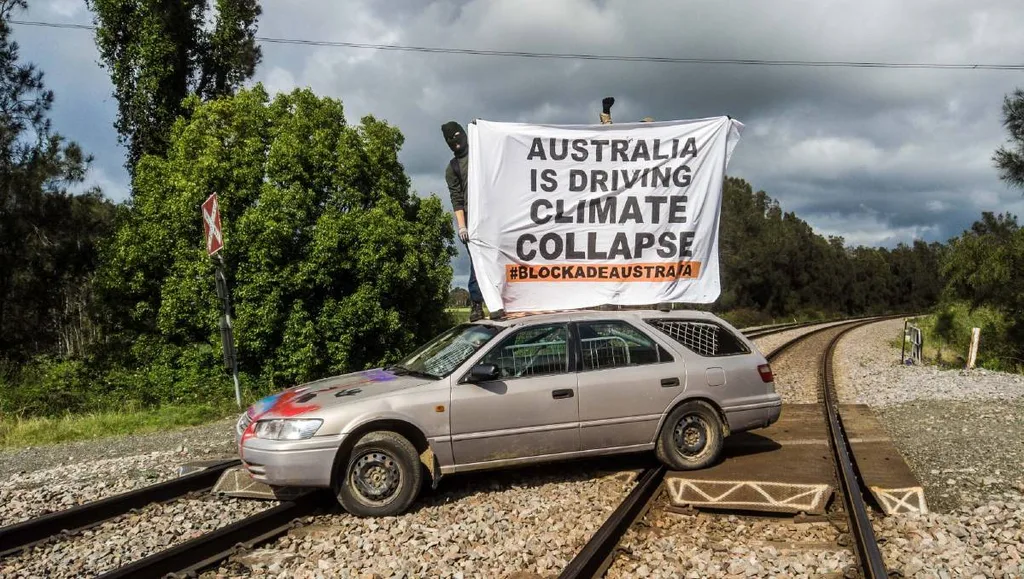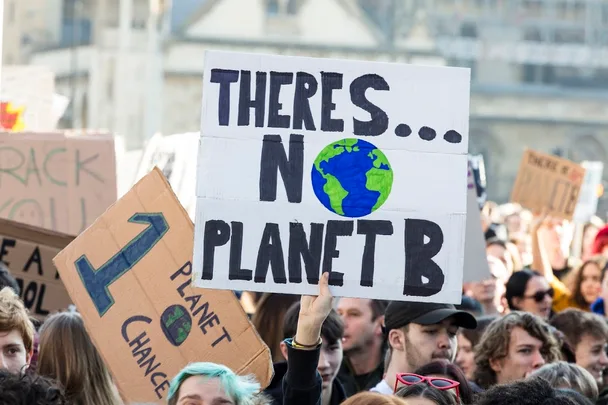Late last week, the NSW Government passed new, tougher punishments for protests (and protesters) across the state. Under the new legislation, protesters could be could be fined up to $22,000 and/or jailed for a maximum of two years for protesting illegally on public roads, rail lines, tunnels, bridges and industrial estates.
As it currently stands, this applies to ports in Newcastle, Port Kembla and Port Botany, but the government have already expressed plans to add to this list in the near future.
The new rules come after a climate change strike last month disrupted major operations around Sydney’s Port Botany. Members of Blockade Australia staged their protests on bridges, roads, freight rail lines and a crane to call for greater action on climate change. A few weeks later, four people were arrested after blocking peak-hour traffic on the Princes Highway in Sylvania.
Attorney-General Mark Speakman said the laws applied to activities that “shut down major economic activity” after clarifying that while the government was “on the side of climate change action”, they could not stand for “a handful of anarchist protesters who would wish to bring this city to a halt”.

Mr Speakman went on to say that the new legislation were not designed to block action such as the NSW Nurses and Midwives Association’s mass strike, but rather, is an attempt to stop and criminalise protests that cause harm to the economy.
In a parliamentary speech, NSW Labor leader Chris Minns confirmed that the opposition were in support of the changes, as they were paramount “to the safety and security” of NSW.
“It is shameful to think that it’s appropriate to disrupt the lives of ordinary people as they go about their business in the pursuit of your own particular aims,” he said.
The Greens, on the other hand, have been incredibly vocal about their disdain for the new laws, calling them nothing short of “undemocratic” and an attempt by the government “to jail their political opponents”.
“This move to target political and environmental campaigners may well be in breach of the constitutional protections for political communication and we anticipate a court challenge on them very soon,” said Greens MLC David Shoebridge.
Despite their best efforts to stop the legislation from taking effect, including a late night filibuster (a prolonged debate on proposed legislation to delay or prevent a decision), their efforts was unsuccessful.

While the legislative change has invoked significant backlash, it seems one of the largest concerns (and gripes) is the decision to sanction some forms of protests, and not others. It seems as though industrial action – like the aforementioned nurses and midwives strikes – will not be held to the same standards as say, a climate change protest. The hierarchy of protest rights is attracting significant criticism about what can and cannot now be lawfully protested.
While the Australian Constitution does not explicitly protect freedom of expression, the High Court has maintained an implied freedom of political communication which exists as an indispensable part of the system.
Speaking to the Human Rights Law Centre, Environmental Defenders Office CEO David Morris said:
“Peaceful protest can seem disruptive in the moment, but it has long been recognised by our courts as essential to our democratic process. Peaceful environmental protest has played a crucial part in achieving meaningful change through the Australian democratic process. This law has implications far beyond the environmental protests occurring at this specific point in Australian history. It endangers the public’s ability to have their voice heard through public protest and demonstration, activities which are at the very heart of our democratic process.”
Despite alarm and concern from human rights organisations, environmental groups and unions, it seems that the new legislation, at least for now, is here to stay. It remains to be seen how these laws will come into effect and how they will play out across the political scene. Perhaps we will see an increased level of aggression and hostility at protests from both the protesters themselves and the police force, or perhaps it will deter protesting activity altogether.










